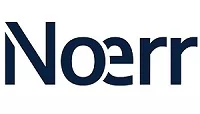Also in Russia, the civil law liability of management and supervisory board members for the company's wrongdoing is becoming increasingly important. In particular, companies and shareholders have started to recover corporate fines from the management. This further increases the already high personal liability risk for the management in Russia.
Statutory framework and court clarifications
Under Russian law1, each director of a Russian legal entity (CEO, management board member, supervisory board member) has statutory duties to act in the interest of the company, and to exercise his or her rights and obligations in good faith and reasonably. A director is liable for damages – real damage and lost profit – which have been caused to the company (and in public joint stock companies, in certain cases also for damages caused to the shareholders) due to his or her culpable actions or inaction. Legal actions against directors can be initiated by the company itself or its shareholders.
In 2013, the Russian Supreme Commercial Court issued clarifications of certain questions which had arisen in court cases dealing with directors' liability2. One of the court's major clarifications concerned the compensation of damages in cases where the company had been exposed to so-called public liability (e.g. tax or administrative liability). The court stated that directors must take necessary and sufficient measures to ensure the company complies with its public obligations imposed by applicable law. Otherwise, the losses caused to the company by non-compliance can be recovered from the director3. Approval by the company's shareholders' meeting does not exclude this liability4.
Increasing number of successful claims
There is no statutory obligation of the company's corporate bodies to claim damages from directors. However, since the Supreme Commercial Court issued its clarifications, the number of successful court proceedings against directors to recover fines has been constantly increasing. Regional and federal commercial courts as well as the Russian Supreme Court (which is the successor of the Supreme Commercial Court) have been ruling consistently in favour of these claims – typically initiated by shareholders and insolvency administrators. The granted damages range from RUB 100,000 to several million roubles. In most cases, claims were made against the company's CEO to recover fines for administrative violations which occurred during the company's day-to-day activity.
However, supervisory board members – in particular those of public joint stock companies – are not exempt from such claims. In at least one case, an administrative fine (imposed on a public company by the Russian Federal Service for Financial Markets) was successfully recovered from the members of its supervisory board. In that case, the court ruled that the board members had failed to include mandatory information in the agenda of the company's shareholders' meeting which had been approved by them5.
Areas with increased liability risk
The available court rulings show that directors may be held liable in practice in particular in cases where the company has been fined for the following violations:
- non-payment of taxes and levies – statutory fine up to 20% of the unpaid amount (40% in case of wilful non-payment);
- antitrust violations – statutory fine up to 15% of company's turnover on the relevant market or a fixed amount of RUB 1 million (approximately EUR 13,000);
- bribery offences – depending on the amount of the bribe, statutory fine up to 100 times the amount of the bribe but not less than RUB 100 million (approximately EUR 1.3 million);
- non-compliance with disclosure requirements – statutory fine of up to RUB 1 million (approximately EUR 13,000);
- failure to convene an annual shareholders' meeting – statutory fine up to RUB 700,000 (approximately EUR 9,000);
- violations of safety (e.g. fire safety) rules – statutory fine up to RUB 400,000 (approximately EUR 5,000).
A director's liability risk is particularly high in cases where the company has been fined for the non-payment of taxes and levies. The mere fact of the company's failure to pay taxes may already suffice to constitute a director's personal liability for compensation of damages. The requirements on a director's liability are currently higher in case of antitrust violations and bribery offences. So far the courts seem to require that directors have personally performed actions that resulted in the company's liability for such violations6. In particular in case of bribery offences, the mere failure to implement a compliance management system (CMS) – which is an obligation of the company under the Russian Anti-Corruption Law7 – currently does not suffice to constitute a director's liability.
Practical recommendations for directors
The directors of a Russian company – in particular the CEO – have always been subject to extensive personal liability towards the Russian authorities for administrative violations committed by the company. This liability is now greatly increased by their additional liability towards the company and its shareholders. The latter can be excluded by an agreement between the director and the company only to a very limited extent8. Directors are therefore well advised to ensure that these increased liability risks are sufficiently covered by their D&O insurance. Since Russian law does not require directors to pay any deductible in connection with the company's damage, D&O insurance can cover 100% of these risks.
Footnotes
1 Article 53.1 of the Russian Civil Code, Article 71 of the Russian Law on Joint Stock Companies and Article 44 of the Russian Law on Limited Liability Companies.
2 Resolution of 30 July 2013 No. 62 of the Plenum of the Supreme Commercial Court of the Russian Federation "On certain questions of the compensation of losses by persons belonging to the bodies of legal persons" (the "Clarifications").
3 Item 4 of the Clarifications.
4 Item 7 of the Clarifications.
5 Decision of the Commercial Court of Voronezh region of 19 December 2013, case No. A14-9260/2013.
6 Decision of the Commercial Court of Volga-Vyatsky region dated 21 June 2017, case No. A79-3898/2014; Decision of the Federal Commercial Court of Volga region dated 20 February 2014, case No. A12-6860/2013.
7 Article 13.3 of the Russian Anti-Corruption Law obliges organisations to develop and implement measures to prevent corruption.
8 According to Article 53.1 Section 5 of the Russian Civil Code the liability of directors of public joint stock companies cannot be excluded or restricted. In other companies, only the liability for unreasonable actions/inaction can be limited.
The content of this article is intended to provide a general guide to the subject matter. Specialist advice should be sought about your specific circumstances.


